Love how she jumps on this delicate song with both marching boots.
Lighter, with lots more vibrato and better French
Tenoro profondo
Fancy meeting you here
And let’s hear it from the woodwinds:

Love how she jumps on this delicate song with both marching boots.
Lighter, with lots more vibrato and better French
Tenoro profondo
Fancy meeting you here
And let’s hear it from the woodwinds:

Welcome to the 91st work in the Slipped Disc/Idagio Beethoven Edition
Piano sonata no 27, opus 90 (1814)
Beethoven’s assistant Anton Schindler claimed that he meant to entitle the two short movements of this sonata ‘a contest between head and heart’ and ‘conversation with the beloved’. Many think Schindler forged an entry in Beethoven’s notebooks to this effect. Whatever the case, the romantic inscriptions never appeared in print and have nothing to do with the pure music of this short sonata, his first for five years and a final stepping-stone before he reaches the summits of the genre with the Hammerklavier and the opp 109-111.
In terms of food for thought and playing philosophy, the sonata has little to offer – until it comes into the hands of two pianists in the former Soviet Union and affords a study in contrasts that is exceptional, immersive and extraordinarily revealing of two giants and their times.
Sviatoslav Richter (1915-1997) grew up in the Black Sea port of Odessa and hung out in his teens at the opera house, accompanying singers and dancers. He never finished school but his memory was so adhesive that he knew the complete stage works of Rimsky Korsakov and was able to advise Valery Gergiev when he restored them at the Mariinsky in the 1990s. He moved to Moscow in 1937 after his parents split up – his father was later shot as a German spy, a betrayal he blamed on his mother – and received formal lessons from the Scriabin disciple Heinrich Neuhaus, who also studied with Rachmaninov’s teacher Nikolai Zverev and was the repository of the Russian tradition of piano playing, whether Mozart and Beethoven or Glinka and Tchaikovsky.
Richter was launched as a comet on the concert circuit at exactly the time Emil Gilels returned from Brussels with the Queen Elisabeth prize, a massive Soviet propaganda coup. Gilels (1916-1985) grew up in an Odessa Jewish family, graduated smoothly through the system and entered the Neuhaus class in Moscow in 1932. His violinist sister Elizabeth, was another Brussels prize-winner. He was by nature quiet, undemonstrative, non-combustible. Gilels formed a trio with his sister and her husband, the violinist Leonid Kogan. Richter lived with (they never married) the soprano Nina Dorliak; he was generally assumed to be gay.
Richter and Gilels were natural rivals and were crudely played off against one another by the Soviet authorities. After Richter gave the world premiere of Sergei Prokofiev’s 7th sonata, Gilels was awarded the 8th. Gilels was among the first artists to be allowed out into the free world after Stalin died. Richter was held back punitively for several years by the mistrustful authorities. At the first Tchaikovsky competition in Moscow, Gilels served as piano chairman and went in trepidation to the party chief Nikita Khrushchev asking if it was permissible to declare an American, Van Cliburn, as the winner. Richter, also on the jury, gave zero to most other candidates and top marks to Cliburn.
When Richter was finally given a passport, he would give his KGB minders the slip and go missing. The British impresario Victor Hochhauser spent hours searching gay bars in Paris, only to hear the unmistakable Richter touch through an open window of an apartment block at two in the morning: Richter was playing four-hand with the American Julius Katchen, whom he had just met. When the Soviet culture minister Furtseva ordered him to condemn the cellist Rostropovich for sheltering the outcast novelist Solzhenitsyn in his tiny dacha, Richter replied: ‘You’re absolutely right. It’s too small. Solzhenitsyn should come and stay with me, I have a bigger place.’
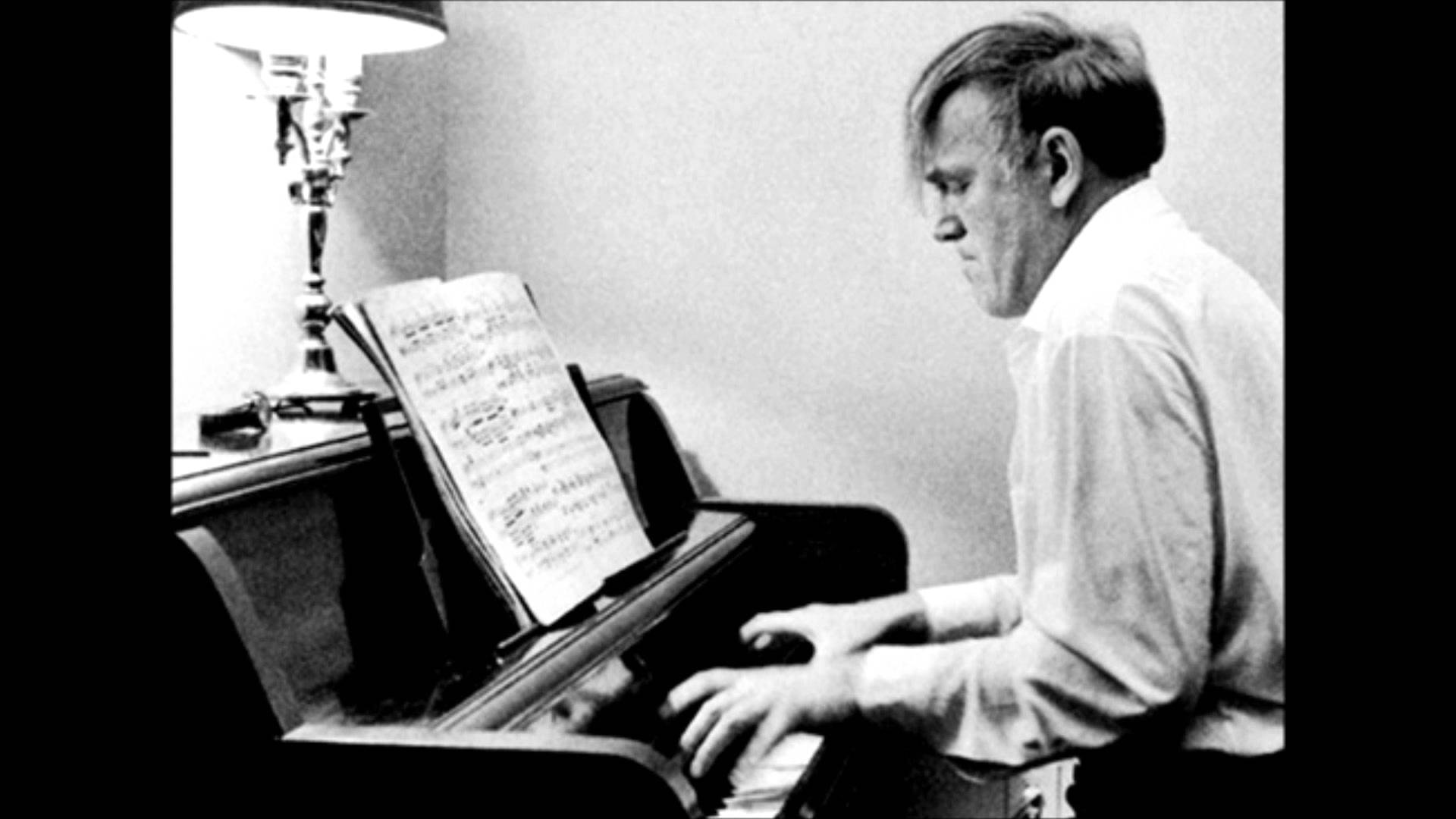
Gilels lived in terror of of the KGB (his brother-in-law Kogan was an alleged informer). ‘They are killing me,’ he told the Israeli conductor Uri Segal. ‘Look, my hands are shaking. How do they want me to play a concert now?’ Yet he was capable of great personal courage, continuing to visit the ousted Khrushchev who was living in social isolation after the Brezhnev regime declared him a non-person.
The stubbornness that both men displayed was a product of their individual integrity. Both had a highly personal approach to the music they played, an ever-evolving interpretation that came from deep within and somehow projected a reflection of that immediate moment: it could never sound the same again. Richter recorded haphazardly, when it pleased him, cancelling more often than not. Gilels allowed the Soviet bureaucracy to lock him into long-running record contracts, but each of his recordings was unusual and his failure (by three missing sonatas) to complete a Beethoven cycle for Deutsche Grammophon can perhaps be seen as a silent protest against the system that so oppressed him.
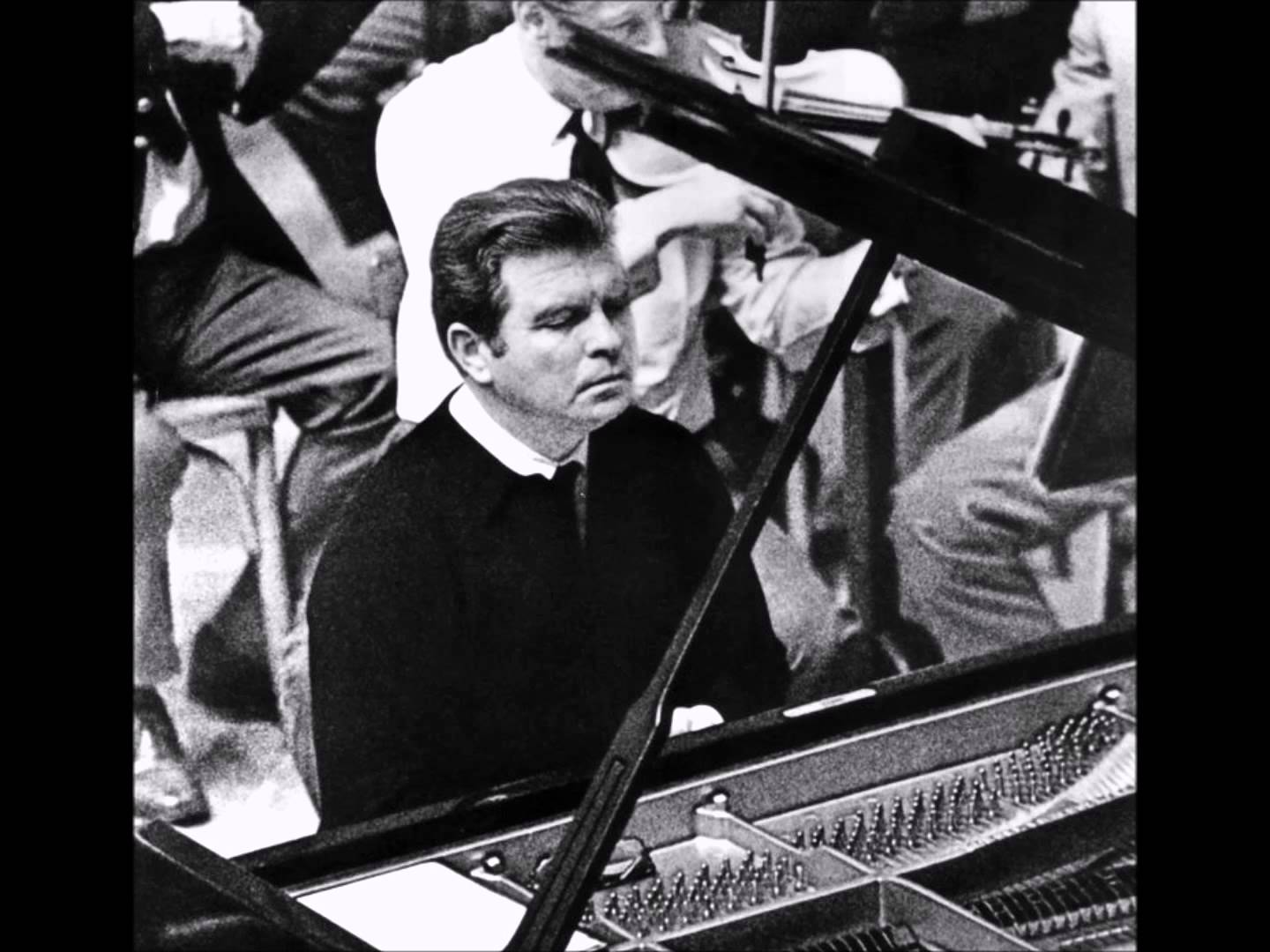
Both artists regarded Beethoven as the fulcrum of their repertoire. Richter would pair Beethoven sometimes with the serialist Webern; Gilels was more likely to balance a Beethoven sonata against one of Prokofiev’s. Both used the short 27th sonata as a recital opener. Both recorded it twice.
Richter, in January 1951, overcomes grotty Moscow studio sound and a rattly piano with a breadth of expression that sounds like freedom itself. Gilels, in an April 1957 London concert, is brutal and abrasive in the opening statements, his initial resentment developing into a wonderfully consolatory, wholly unexpected conclusion.
In his DG recording 17 years later, he focusses on producing exquisite sound in ideal working conditions. Less confrontational than before, this amounts to a reference performance, one for future generations to be measured against. Richter, recording on Decca at an unknown date, is at his most introspective. ‘I play for myself and the composer,’ he once said, and that’s exactly what you hear in this thoughtful, athletic, elusive recital.
That two artists, so different in every aspect of their being, should have flourished in such diversity under an all-controlling authoritarian regime is a testament to human resilience and to the infinite capacity of great artists to find a way of slipping through cracks in a brick wall. I cannot choose between Gilels and Richter in Beethoven. I need both to retain hope and faith in a better future.
The Shostakovich chamber festival at Gohrisch, in eastern Germany, had been planning nine world premieres.
Then Covid intervened.
So the works will now be played by three Russian pianists in different countries. Yulianna Avdeeva will play in Gohrisch at the Albrechtshof hotel where Shostakovich composed his eighth string quartet in 1960.
Dmitry Masleev will join the livestream from the Tchaikovsky Concert Hall in Moscow and Daniil Trifonov will perform two premieres from his home in Greenwich, Connecticut.
You can watch from Sunday on DG’s Youtube channel:
Piano Sonata No. 1 op. 12
Drei Fugen o. op., World Premiere
Scherzo op. 1a, World Premiere
Sechs Klavierstücke aus den Jahren 1918-1920, World Premiere
Präludium und Fuge cis-Moll, vervollständigt von Krzysztof Meyer World Premiere
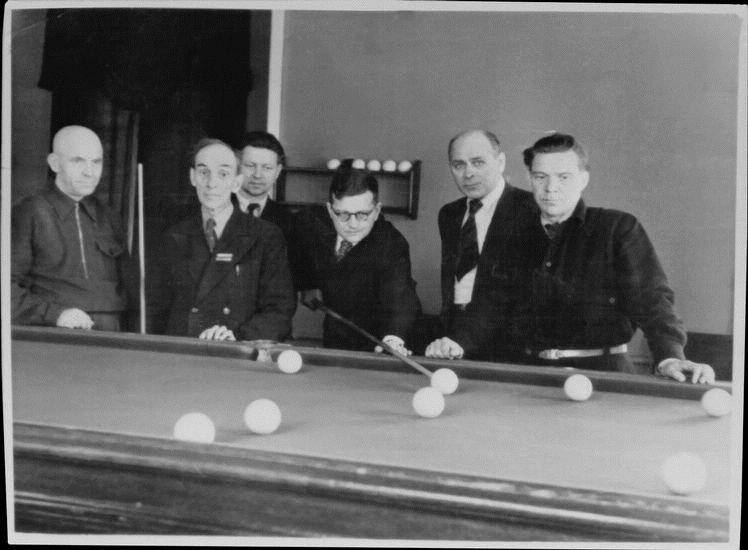
We hear that Lahav Shani, music director of the Rotterdam Philharmonic and the Israeli Philharmonic, married Miri Saadon yesterday in Berlin.
Miri, a clarinetist in the West-Eastern Divan Orchestra, posted that she is ‘celebrating our wedding with Lahav Shani in Berlin, Germany.’
She adds: ‘A perfect day with my forever best friend. Lahav, You make my heart smile, I love you ❤️’
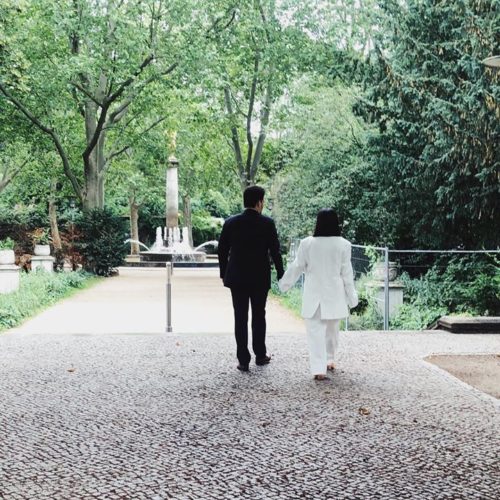
We understand the wedding took place in the garden of Daniel Barenboim and Elena Bashkirova.
The Zurich Chamber Orchestra has renewed Daniel Hope as music director for three more years, to 2024.
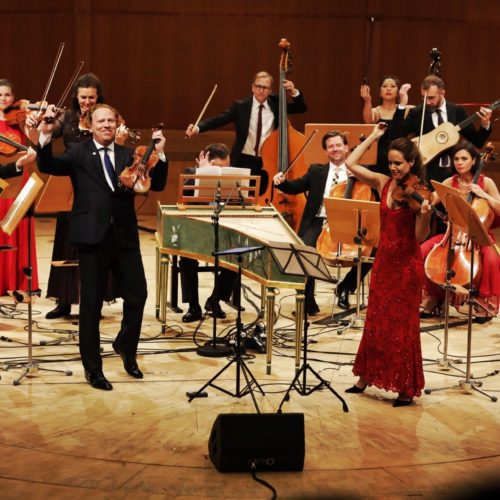
Hampstead Garden Opera is planning to stage Holst’s ‘Sāvitri’, with orchestra in the garden of Lauderdale House, Highgate in August.
One of the singers, Alex Aldren, went back to his previous vocation, medicine, and worked in an NHS hospital at the Covid peak.
The production will be staged by Julia Mintzer and conducted by Thomas Payne.

The Jack Quartet has appointed a managing director.
Her name is Julia Bumke and she is ‘a new work dramaturg and nonprofit strategist who fosters composers, performers, and playwrights at all stages of their careers.’
She started work yesterday and her salary is supported by the New York State Council on the Arts’ Regional Economic Development Council (REDC) Initiative.
Why a string quartet should need a fulltime CEO is open to question. But why the public purse should pay her wage is baffling indeed.
Go on, explain.

Bulletin from Berlin:
The Berliner Philharmoniker and their chief conductor Kirill Petrenko have been forced to cancel their US tour planned for November due to the ongoing restrictions on international travel caused by the corona pandemic and the closure of some concert halls in the USA.
It would have been their first US trip with Petrenko.
“We are already in dialogue with the promoters to catch up on the concerts planned in Naples,
Miami, Boston, Ann Arbor, Chicago and New York in the coming years. At the moment, such a
tour is unfortunately not feasible due to the current situation, and it would also be irresponsible
to stick to the original plans, however much this decision hurts,” said Andrea Zietzschmann,
General Manager of the Berliner Philharmoniker Foundation.
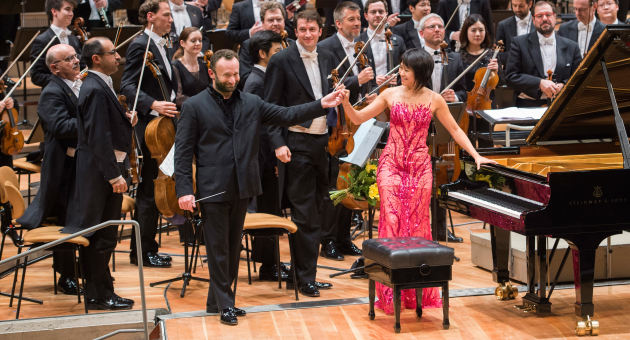
Madrid, July 1 2020: a semi-staged Traviata with 50 percent audience, all in masks and everyone tested before and after.
It can be done.

The Karol Szymanowski Quartet has chosen Karol Marianowski as its next cellist.
We would like to thank our beloved Monika Leskovar for all the years that she contributed to the unforgettable journey of the ensemble. After Monika’s maternity leave she’s decided to pursue her musical career as a soloist and faculty member of the Academy of Music in Zagreb, Croatia, being still very committed to the chamber music. Due to the COVID-19 our symbolic farewell concert is being postponed but we are more than sure to meet on stage in the nearest future.

The mighty Ludwig Finscher, editor of the 28-volume Die Musik in Geschichte und Gegenwart, has died at 90.
He was the Stanley Sadie of German lexi/musicography, contributing 40 articles of his own to the latest MGG.
He also worked on the complete editions of Gluck, Mozart and Hindemith and was president of the International Musicological Society from 1977 to 1981.

In Geneva, singing Die Schöne Müllerin at the Grand Théatre tonight.
Seen here with a journalist, Claire Bourgy.
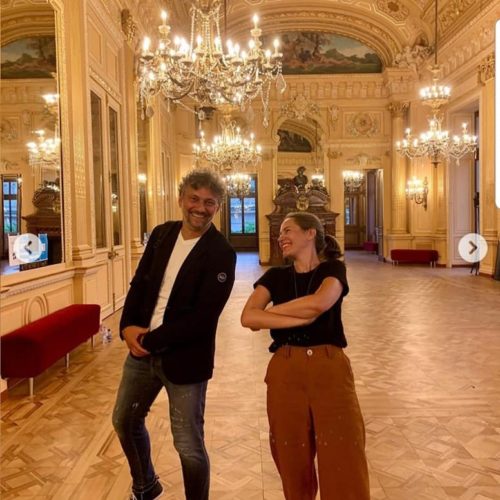
He tells Laura Fontana: ‘This boy is so innocent that he doesn’t know how to seduce his müllerin. In my opinion he ends up committing suicide… but not everyone thinks like me…. and certainly not my piano partner Helmut Deutsch.’